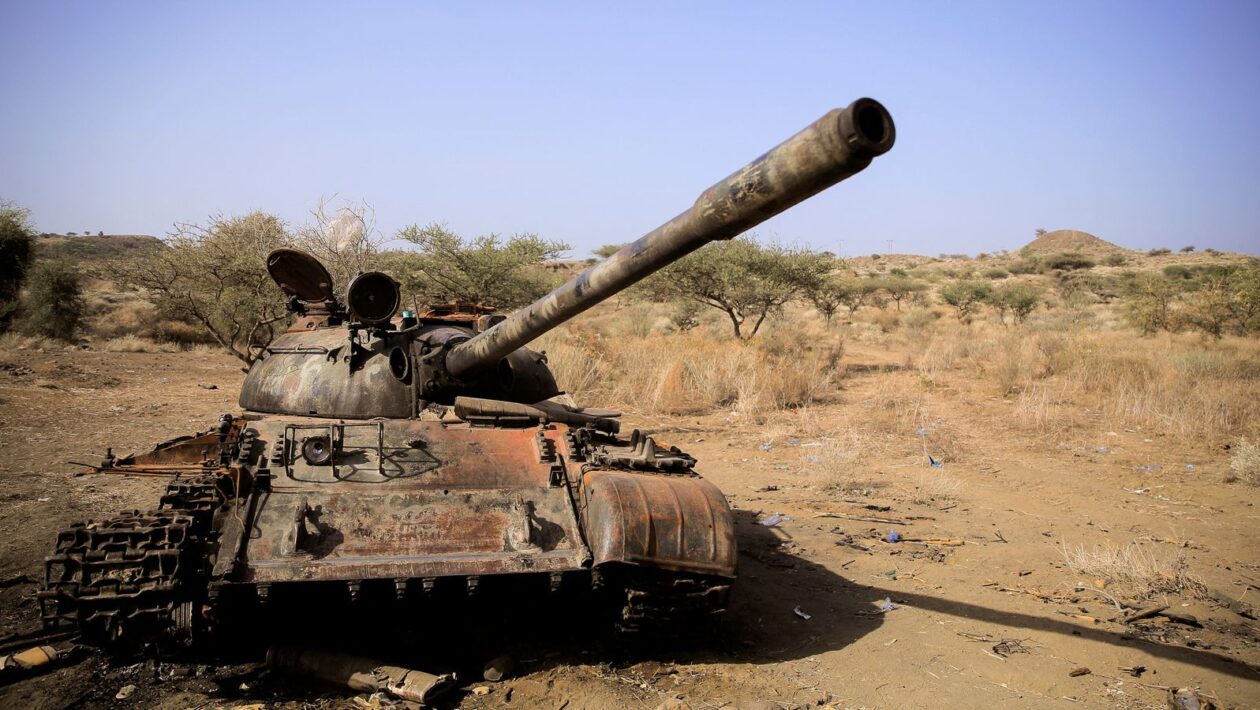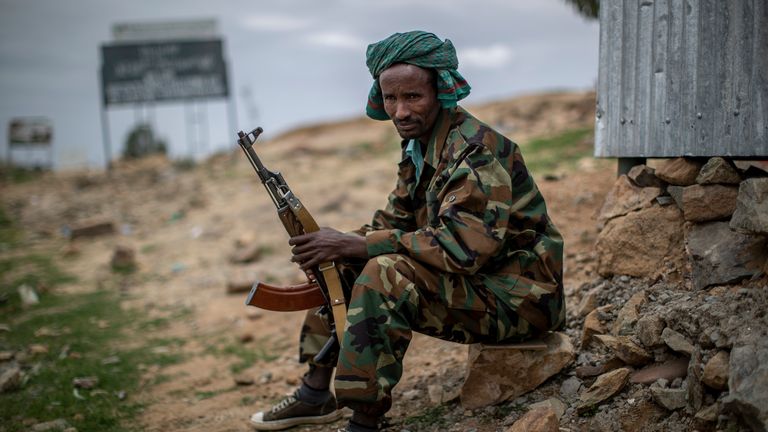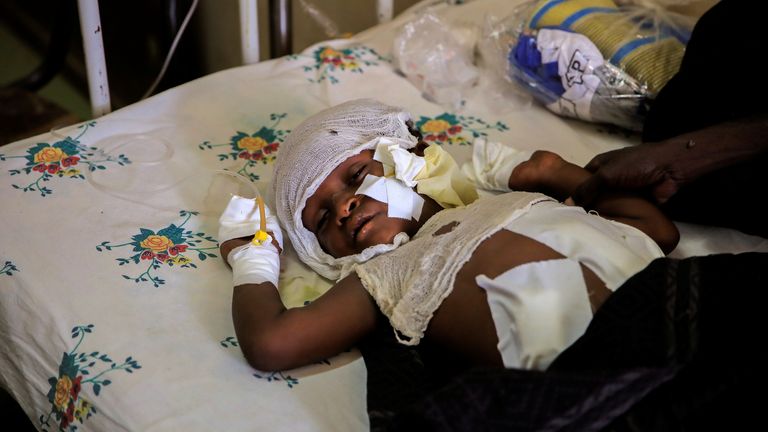[ad_1]
The warring sides in Ethiopia’s civil war have formally agreed to a permanent cessation of hostilities.
In a briefing on the peace talks in South Africa, former Nigerian president Olusegun Obasanjo said Ethiopia‘s government and Tigray authorities have agreed on “orderly, smooth and coordinated disarmament”.
He said other key points included “restoration of law and order” as well as “restoration of services” and “unhindered access to humanitarian supplies”.
The two-year war has killed thousands of people, displaced millions and left hundreds of thousands facing famine.
“It is now for all of us to honour this agreement,” said the lead negotiator for Ethiopia’s government, Redwan Hussein.
Lead Tigray negotiator Getachew Reda expressed a similar sentiment and noted “painful concessions” have been made.
Both sides have been accused of committing abuses.
Eritrea, which has fought alongside neighbouring Ethiopia, was not a part of the peace talks. It is not clear whether its government will respect the agreement as it has long considered Tigray authorities to be a threat.
Eritrean forces have been blamed for some of the conflict’s worst abuses, including gang rapes, and witnesses have described killings and lootings by Eritrean forces even during peace talks.
Read more:
Four young sisters among those caught up in country’s bloody civil war
Ethiopians prepare for battle to ‘save the nation’, as men and women head to the front
Forces from Ethiopia’s neighbouring Amhara region have also been fighting Tigray forces, but the region’s representatives have not been part of the peace talks.
“Amharas cannot be expected to abide by any outcome of a negotiations process from which they think they are excluded,” said Tewodrose Tirfe, chairman of the Amhara Association of America.
People dying of easily preventable disease and starvation
It remains to be seen how quickly aid will be able to return to Tigray, where communications and transport links have been largely severed since the conflict began.
Doctors have described running out of basic medicines such as vaccines, insulin and therapeutic food. They say people have died of easily preventable disease and starvation.
United Nations human rights investigators have accused the Ethiopian government of using “starvation of civilians” as a weapon of war.
How did the conflict begin?
The conflict began in November 2020, less than a year after Ethiopian Prime Minister Abiy Ahmed was awarded the Nobel Peace Prize for making peace with Eritrea, which borders the Tigray region.
His government has since declared the Tigray authorities, who ruled Ethiopia for nearly three decades before he took office, a terrorist organisation.
In a speech on Wednesday before the peace talks’ announcement, Mr Ahmed said that “we need to replicate the victory we got on the battlefield in peace efforts, too. We are finalising the war in northern Ethiopia with a victory… we will now bring peace and development.”
[ad_2]



